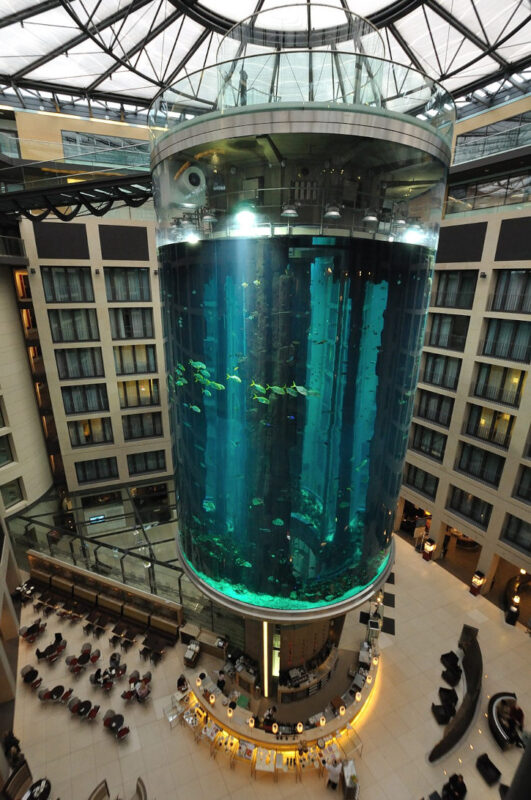News
Aquadom destruction: The Aquadom in Berlin burst a year ago
The destruction of the Aquadom in Berlin-Mitte on 16 December 2022 was an event of enormous proportions, described by eyewitnesses as a sudden bang, comparable to a lightning strike or an explosion. The effects were catastrophic: a tidal wave, debris and dead fish everywhere. Guests at the hotel where the Aquadom was located reported a terrible sight.

One million litres of water were flushed through the building
In the early hours of that morning, the cylindrical aquarium was destroyed and the search for the exact cause remains ongoing. A politician who was staying at the affected hotel described the destruction inside as devastating. She emphasised the scale of the tragedy for the fish and the hotel. Around one million litres of salt water were released when the aquarium suddenly burst and a massive tidal wave swept through the building, destroying parts of the facade and devastating the surrounding street.
The disaster affected not only the hotel, but also the neighbouring GDR museum. The aquarium housed around 1,500 fish of various species, most of which perished when the tank was destroyed. The Berlin fire brigade reported that the remaining fish were found both inside the building and on the street. Some survivors were discovered in a bowl of water near a lift, while 630 others were lucky as they were outside the aquadome in underground breeding tanks at the time and could be rescued.
Two people were slightly injured, but the disaster occurred while most people were still asleep, which may have prevented worse. The then Governing Mayor of Berlin, Franziska Giffey (SPD), spoke of an almost unimaginable scenario if the accident had happened just one hour later.
The cause has not yet been clarified
The Aquadom was considered the largest cylindrical aquarium in the world and was an architectural masterpiece by Sergei Tchoban. Despite a comprehensive renovation between 2019 and 2022, which cost around two million euros, leaks and problems during the construction process, the exact cause of the 16-metre-high aquarium bursting could not be determined beyond doubt.
An expert report commissioned by the building owners in autumn 2023 presented three hypotheses as to the cause of the accident. These ranged from potential weak points in the glued seams, damage to the water basin during the refurbishment to tension in the acrylic glass due to insufficient filling after emptying.
Back in May 2023, it was announced that the aquarium would not be rebuilt. The hotel is not expected to reopen until the autumn at the earliest, while the exact cause of this devastating event remains a mystery.